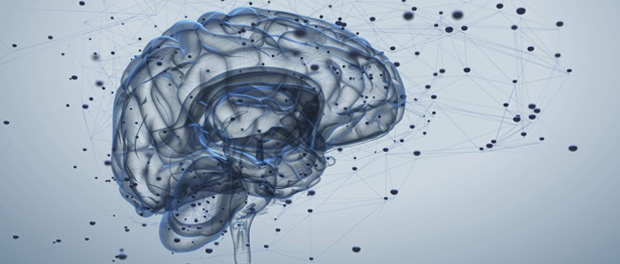
New research has found that a histone deacetylase (HDAC) inhibitor drug used to treat cancer could also help sharpen memory and improve one’s ability to learn a new language. It could even help rewire the brain and sustain neurons which could be of benefit to those suffering from Alzheimer’s and dementia. Researchers from Rutgers published a study in the Journal of Neuroscience that investigated a cancer treatment drug, RGFP966, and found that it had other positive effects that were previously unknown.
The team administered the drug to rats and found that it actually made them more attuned to what they heard, able to remember and retain more information, and create novel neuronal connections that enabled the new memories to be transmitted among brain cells.
Kasia M. Bieszczad, the lead author and assistant professor in Behavioral and Systems Neuroscience in the Psychology Department explained the importance of memory-making in neurological conditions such as Alzheimer’s disease and the fact that making new memories is difficult or doesn’t happen at all for those who are in the late stages of the illness.
“This drug could rescue the ability to make new memories that are rich in detail and content, even in the worst case scenarios,” she said.
In progressive brain disorders like Alzheimer’s, brain cells can shrink and die because the synapses, or the space in between the connecting neurons, aren’t stable or strong enough to transmit information. Eventually memory and function slowly fade away. While some treatments can slow this progression, there is currently no cure for Alzheimer’s or a treatment to regrow lost brain cells.
In this rat study, the drug they administered is classified as an HDAC inhibitor. These are typically used to prevent certain genes from activating and converting normal cells to cancerous ones. The researchers wanted to address the question of how blocking HDAC activity leads to memory enhancements. Previous research has indicated a role for epigenetic mechanisms in the formation of memories, specifically via chromatin modification by histone deacetylases, which typically reduces transcription.
Their results suggest that the drug is able to increase plasticity of neurons, which allows them to make stronger connections and enhance memory. Ultimately, they reported that “epigenetic mechanisms act to regulate sensory cortical plasticity.” In this study, rats learned to listen to a sound to get a reward and were then administered the drug after each training session. The research team found that these rats recalled what they were taught and responded to the tone correctly more often than the rats that were not exposed to the drug, indicating that “RGFP966 controls memory induction for acoustic details of sound-to reward learning.”
In addition, the researchers believe HDAC inhibition by RGFP966 may promote acetylation during consolidation of auditory memory. Although they didn’t find a significant difference, there was a tendency for increased acetylation at H4K8 in the rats that received the drug compared to those that didn’t.
The rats were also more “tuned in” to the acoustic signals they listened to during the training. Bieszczad indicated that this was an important finding because preparing the brain to process and store important sounds is crucial to human language and speech.
“People learning to speak again after a disease or injury as well as those undergoing cochlear implantation to reverse previous deafness, may be helped by this type of therapeutic treatment in the future,” said Bieszczad “The application could even extend to people with delayed language learning abilities or people trying to learn a second language.”
Bieszczad, who collaborated with scientists in the Department of Neurobiology and Behavior at the University of California Irvine, also said that hypersensitivity in auditory information processing allowed the reorganization of neurons and the creation of new pathways. This enabled a greater amount of the information that they learned to solidify into a long-term memory.
We know that not everything we experience – what we see, feel, and hear – is remembered. But this new information on the ability of HDAC inhibitors to enhance our memory and language-learning capabilities could open new doors to remembering our experiences much more accurately.
“What has happened here,” said Bieszczad, “is that memory becomes closer to a snapshot of the actual experience instead of being sparse, limited or inaccurate.”
Source: Bieszczad, K.M., Bechay, K., Rusche, J.R., Jacques, V., Kudugunti, S., Miao, W., Weinberger, N.M., McGaugh, J.L., Wood, M.A. (2015). Histone Deacetylase Inhibition via RGFP966 Releases the Brakes on Sensory Cortical Plasticity and the Specificity of Memory Formation. Journal of Neuroscience, 35 (38): 13124.
Reference: Lally, R. Drug Used to Treat Cancer Appears to Sharpen Memory. Research News at Rutgers. 2 Oct 2015. Web.


